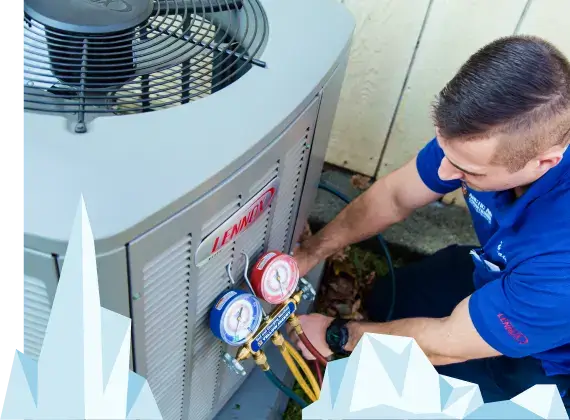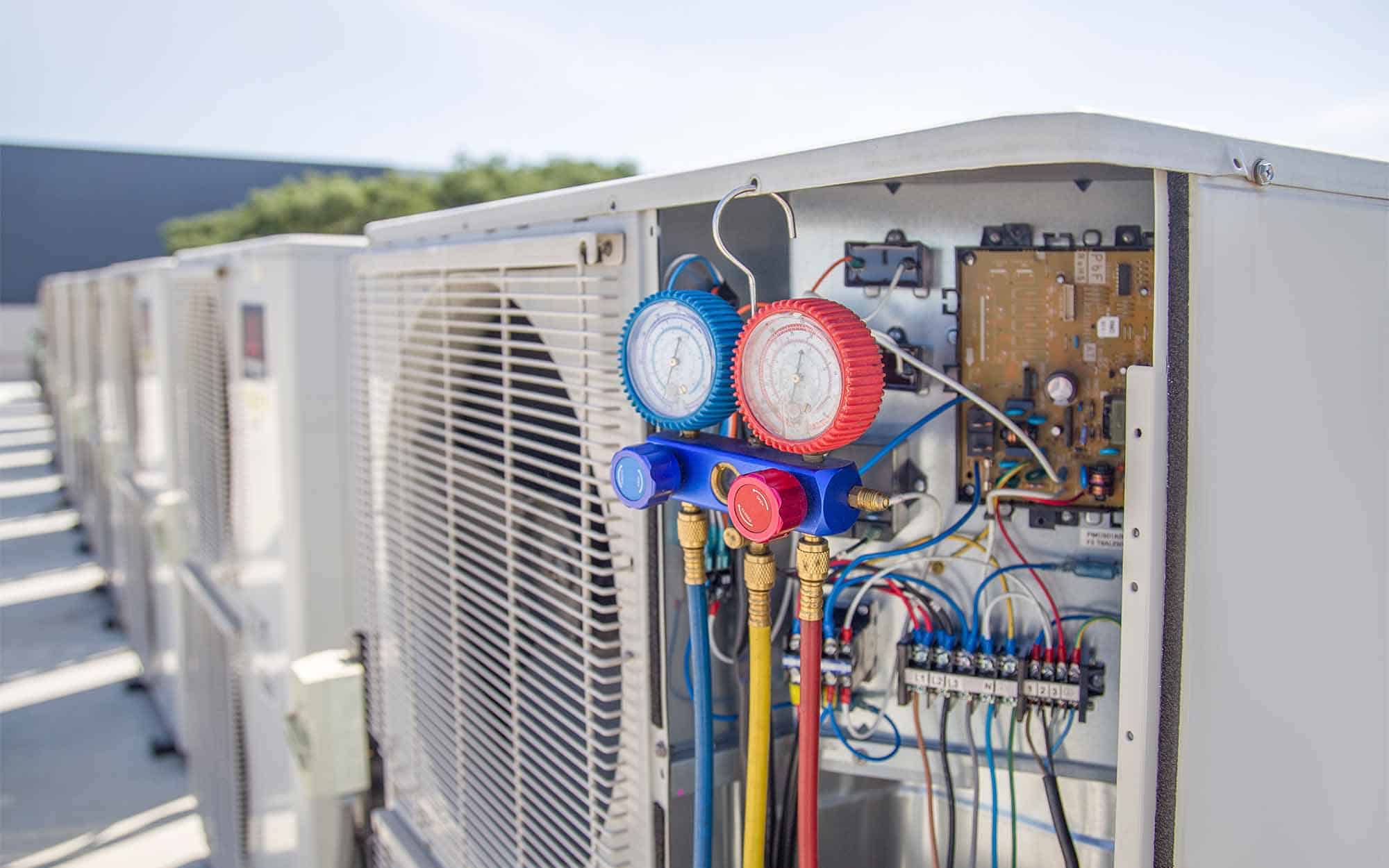The Importance of A/c Installment: Secret Considerations for a Comfy Indoor Atmosphere
The installation of a cooling and heating system is a critical component in attaining a comfortable and energy-efficient indoor environment. Nonetheless, the process involves several nuanced considerations that exceed merely choosing a device off the rack. Elements such as the suitability of the system for particular structure demands, appropriate sizing to circumvent inefficiencies, and the knowledge of specialists for a quality installation play essential functions. The fostering of advanced technologies can dramatically enhance system performance. Yet, understanding these intricacies is merely the start of guaranteeing ideal interior convenience. What are the crucial aspects that determine effective HVAC execution?
Choosing the Right System

When choosing a HVAC system, it is important to review the capability needed to properly warmth or cool the area without exhausting the system, which can cause increased wear and operational costs. Consulting with a specialist heating and cooling professional can give beneficial insights right into choosing a system that lines up with both the building style and the awaited usage patterns of the building.
Furthermore, taking into consideration the integration of smart modern technology can boost system monitoring and monitoring, using better control and potential price financial savings. By thoroughly analyzing these factors, one can make sure the option of an a/c system that not just satisfies instant needs however also adds to lasting functional sustainability and owner comfort.
Understanding Energy Effectiveness
Understanding energy effectiveness is essential when taking into consideration a cooling and heating setup, as it directly influences both the ecological impact and the operational prices of the system. High-efficiency HVAC units are developed to use less energy to accomplish the same degree of convenience as much less reliable versions, thus reducing energy costs and advertising sustainability. The efficiency of a cooling and heating system is normally shown by rankings such as SEER (Seasonal Power Performance Ratio) for a/c unit or AFUE (Annual Gas Use Performance) for heaters. Higher ratings indicate higher effectiveness and decreased power intake.

Buying an energy-efficient cooling and heating system not only equates to cost savings yet also contributes favorably to ecological preservation by reducing greenhouse gas exhausts. Furthermore, lots of territories provide incentives or discounts for the installation of high-efficiency systems, further enhancing their monetary charm.
When examining power effectiveness, think about sophisticated attributes such as variable rate motors, smart thermostats, and zoning capabilities. These advancements boost the system's capability to adapt to varying need, consequently optimizing energy usage. It is vital to talk to a/c professionals that can supply insights right into the most effective alternatives tailored to certain environment problems and use like it patterns, guaranteeing optimal effectiveness and convenience.
Value of Appropriate Sizing

Conversely, an undersized HVAC system will certainly battle to get to the desired temperature level, particularly during extreme weather. This can result in continuous operation, causing greater power prices and possible getting too hot of system elements. Furthermore, inadequate sizing can result in irregular temperature level distribution, triggering specific areas of a building to be also cool or as well warm.
To achieve the right sizing, a comprehensive load computation is necessary. This involves examining various variables such as the structure's square video footage, insulation levels, window kinds, and regional climate problems. By properly determining the heating and cooling down needs of an area, a/c experts can suggest systems that guarantee effective procedure, lowered power intake, and enhanced indoor convenience.

Making Certain High Quality Installation
A smooth heating and cooling installation is the keystone of a system's longevity and efficiency. Making sure quality installation entails precise focus to detail, adherence to industry standards, and using knowledgeable experts. The process starts with choosing a certified and skilled heating and cooling professional. This expert must possess extensive understanding of diverse systems and be experienced at assessing the certain requirements of the structure.
Correct setup goes beyond simple placement of devices. It entails specific calibration to make certain optimum airflow, effective energy consumption, and consistent temperature level distribution. This includes exact ductwork installment, ensuring connections are protected and leak-free, which is vital for maintaining system efficiency and interior air quality.
In addition, the execution of innovative diagnostic tools during installment can identify potential concerns early, avoiding pricey repair work and prolonging the lifespan of the system. The service provider ought to likewise make certain that all parts are compatible and that the system abides by neighborhood building regulations and laws.
Regular Maintenance Practices
When the foundation for a high-performing a/c system is developed internet through high quality installation, the emphasis ought to shift to normal maintenance techniques to make sure continued performance and integrity. Routine upkeep not just prolongs the lifespan of the system yet also boosts interior air quality, lowers power consumption, and protects against expensive repair work. Essential upkeep jobs consist of routinely altering air filters, cleaning evaporator and condenser coils, and evaluating the system for leakages or blockages.
Air filters must be changed or cleaned up every one to 3 months, depending upon use and ecological aspects. This straightforward job can considerably boost air flow and system performance (emergency ac service Brownwood TX). Cleaning up the evaporator and condenser coils stops dust accumulation, which can prevent warm absorption and air conditioning capability. In addition, professional specialists need to inspect the system annually, examining for refrigerant levels, electric links, and overall system performance.
Focus to ductwork is likewise crucial; securing and cleansing air ducts consistently protects against air loss and contamination. Carrying out a maintenance schedule ensures that small issues are dealt with prior to they escalate, guarding the system's operational honesty. By sticking to these maintenance methods, homeowners can enhance their HVAC system's performance and maintain a comfortable indoor atmosphere year-round.
Conclusion
By picking a suitable system tailored to specific structure requirements, recognizing energy effectiveness, and guaranteeing correct sizing, inefficiencies can be lessened. The participation of proficient service providers guarantees top quality installment, while the assimilation of sophisticated modern technologies boosts system efficiency and tracking.
A number of kinds of Cooling and heating systems are offered, consisting of split systems, hybrid systems, duct-free systems, and packaged heating and air systems, each with distinct benefits and constraints.
Recognizing power efficiency is vital when taking into consideration a Heating and cooling setup, as it directly affects both the environmental footprint and the functional expenses of the system. The performance of a HVAC system is usually indicated by ratings such as SEER (Seasonal Energy Effectiveness Ratio) for air conditioners or AFUE (Yearly Gas Application Performance) for heaters (Commercial HVAC contractor in Brownwood TX).Once the structure for a high-performing Heating and cooling system is established with quality installment, the emphasis ought to shift to regular upkeep techniques to make sure ongoing efficiency and reliability. Furthermore, specialist technicians need to heaters for sale examine the system each year, examining for refrigerant levels, electrical connections, and general system performance